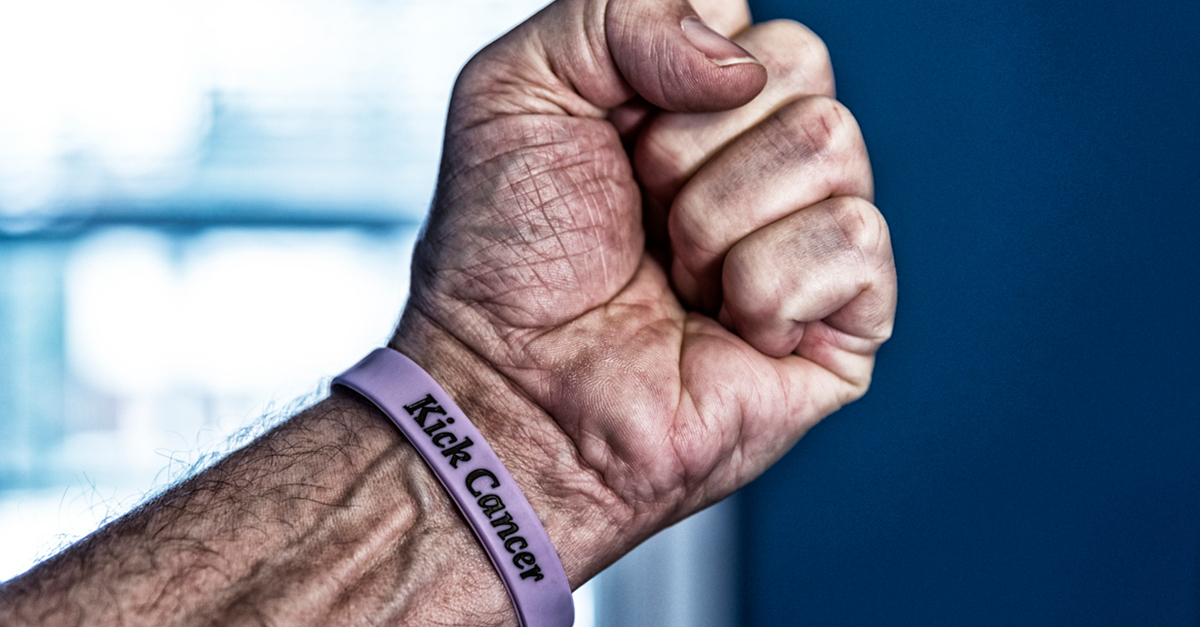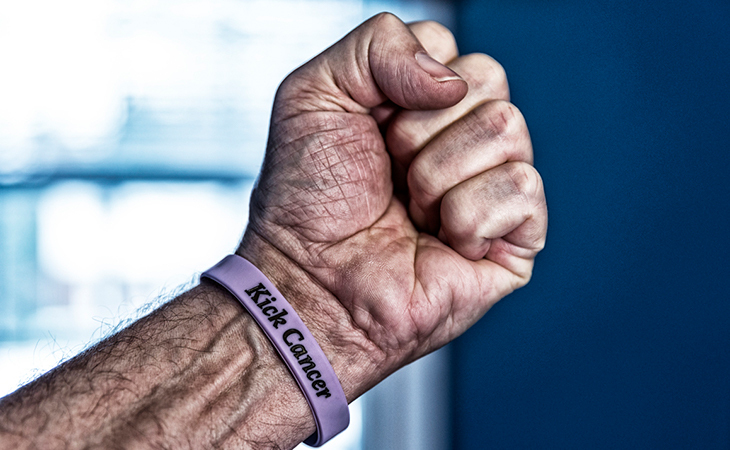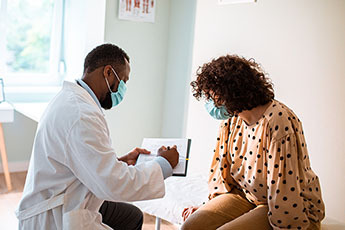Kidney cancer survivor is a voice for others

North Carolina resident Michael B. Lawing was jolted from sleep one night in November 1997 by excruciating pain in his side. He felt nauseous and weak. He and his wife went to the emergency department, where doctors thought he might have kidney stones. After X-rays were taken, Mike went home with pain medicine and a strainer to catch the stones when they passed.
When the hospital called a few days later, Mike was surprised that they wanted to see him again. Doctors reviewing his earlier X-rays had spotted a mass on his right kidney. That’s how Mike found himself back at the hospital the week before Thanksgiving, receiving the worst news of his life.

Facing the Unexpected: Renal Cell Carcinoma
In a 2018 KCCure article, Mike recalled that life-changing conversation. “Finally, the doctor came up to me and knelt down beside my chair, introduced himself and began to tell me the results of the scan. I had never had a CT scan before. His words ran together, but they still echo in my mind: “We have found a large mass on your kidney, and I don’t know how big it is — we will have to run some more tests to figure that out, but it looks bad, real bad. It looks like you have kidney cancer.”
The side pain. The back pain. The nausea and weakness. Mike realized now that they were all symptoms of kidney cancer. But at the time, “I had never even heard of kidney cancer,” Mike said during a 2016 CURE magazine interview.
Instead of feasting on Thanksgiving, Mike fretted about the surgery scheduled for the next day. Surgeons removed his gallbladder, which had gallstones, and his right kidney, which was encased by a massive tumor. At age 49, Mike was diagnosed with stage 3 renal cell carcinoma (RCC), the most common type of kidney cancer in adults. RCC occurs when cancerous cells form in the lining of very small tubes (tubules) in the kidneys.
Getting Schooled on Kidney Cancer
At a follow-up appointment after surgery, Mike’s doctor explained the seriousness of kidney cancer. “…it didn’t respond to chemotherapy or radiation, and while my surgeon was confident that they had removed all the tumor, which was completely surrounding my right kidney, he began to tell me that the risk of recurrence for my case was very high,” Mike shared with KCCure. “He optimistically pegged my survivorship at five years due to my high risk of having recurrent disease.”
Mike’s urologist knew little about this type of cancer, so Mike invested time learning all he could about the disease and available treatments. This education came in handy three years later when the kidney cancer metastasized (spread) to lymph nodes in his abdomen and neck. Mike received intravenous infusions of interleukin-2 or IL-2 (aldesleukin). This kidney cancer treatment is a type of immunotherapy that stimulates the production and growth of T cells (a type of white blood cell) to help the body fight cancer.
Mike was hospitalized while undergoing treatment because the side effects — low blood pressure, fever, flu-like symptoms, nausea, and a rash — can be severe and require close monitoring. In a June 2017 CancerToday interview, Mike recalled, “A doctor told me, ‘Don’t ever think you’re cured.’ That was sobering, but he was being honest because I was in a bad situation.”
Mike began taking sunitinib (Sutent®) in 2007 after the U.S. Food and Drug Administration (FDA) approved the drug for the treatment of advanced kidney cancer. It was around this time that Mike came across the website for the Kidney Cancer Association (KCA). There, he found a forum of other people with kidney cancer sharing their stories. Mike joined in, sharing what he had learned in his decade-long fight, particularly his experience with IL-2 and sunitinib. Mike was so helpful and knowledgeable that the KCA asked him to moderate the forum. Today, he serves as a community leader of the KCA member forum, which is now found on Inspire.
Mike continued to take sunitinib off and on for a decade, going off the medication when the tumor growth was stable and then back on it when scans indicated the tumors were growing. In 2016, when the tumors seemed to stop responding to the treatment, Mike received 10 infusions of the immunotherapy drug nivolumab (Opdivo®) over a five-month period. Since then, CT scans show that the tumors remain stable.
Becoming a Powerful Kidney Cancer Patient
In his more than 20 years as a kidney cancer survivor, Mike has become a vocal patient advocate for others diagnosed with kidney cancer. He volunteers with the chaplaincy program at the Hospice of Rutherford County in western North Carolina, where he strolls the halls playing his guitar and singing gospel hymns to patients and their families.
He has served as a patient representative on cancer research funding teams and created patient-friendly summaries of scientific presentations and research for the KCA, where he previously served on the board of directors. Mike currently is Director of Outreach for KCCure, a nonprofit organization that funds kidney cancer research while raising patient awareness. He also co-chairs the KCCure Patient Advisory Board.
“I firmly believe that in today’s society, people with cancer often limit their quality of life and their ability to survive because of their lack of knowledge and understanding about their disease,” Mike told CancerToday. “While I may have limited abilities and knowledge in so many areas, the simple act of sharing that knowledge with others benefits them and challenges me to learn and to try to do more.”
More than 20 years ago, Mike was told he might have five years to live. “Today, while there are many treatment options for this type of cancer, there are still substantial areas where little is known about which treatment will work best, what side effects to expect, and a host of other issues,” Mike noted in a post on Powerful Patient, a Boston-based podcasting organization focused on medical issues.
“For this reason, a strong relationship exists between my medical team, me, and my caregivers. My initial care team instilled in me the necessity of being an informed Powerful Patient for my own benefit and well-being,” Mike wrote. “That necessity continues today as a valuable tool of survival; it should continue for each of us no matter what our medical condition or challenges. All of us will benefit from learning how to better advocate for ourselves and our loved ones in matters of healthcare.”
Sources
The Gift of Music. Cancer Today. June 2017.
Kidney Cancer Association Strives to Bridge Gaps in Knowledge. Cure. September 2016.
Patient Advisory Board. KCCure.
Voice of Kidney Cancer: Michael B. Lawing. KCCure. March 2018.
Disparities in Care for Kidney Cancer. Powerful Patient.
Mike Lawing. Powerful Patient.
How a Kidney Cancer Survivor Became a Partner in His Care. Scope. December 2015.
Disclaimer
Member comments are lightly edited for length and to remove identifying information but are otherwise reproduced as they appear in the community as part of public posts.
This content is for general informational purposes only and does not necessarily reflect the views and opinions of any organization or individual. The content should not be used as a substitute for professional medical advice, diagnosis, or treatment. Please consult your healthcare provider about any questions you may have regarding a medical condition.




